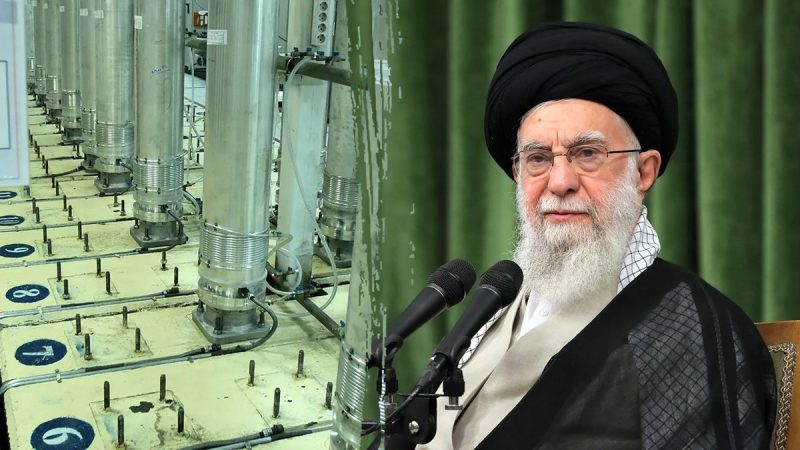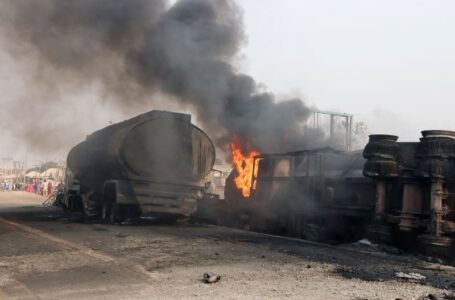Solar-charging backpacks are helping children to read after dark
Iran vastly increased nuclear fuel stockpile ahead of Trump return, UN agency finds


Iran has increased its nearly weapons-grade uranium, a United Nations watchdog found, defying international demands to rein in its nuclear program.
Iran now has enough uranium at 60% purity, just below the 90% purity needed for a weapon, to produce about four nuclear bombs, an International Atomic Energy Agency (IAEA) report said.
The report found Iran had about 400 pounds of uranium enriched to 60% as of Oct. 26, up 40 pounds from August.
Around 92 pounds of uranium, enriched at 90%, is needed to make an atomic weapon.
Iran’s overall stockpile of uranium enriched at any level reached about 14,560 pounds, up 1,880 pounds from August.
It comes as Iran has offered to cease enriching uranium beyond 60% – but only if the European Union and the United Kingdom cease their efforts to slap new sanctions on Iran and the IAEA drops a censure resolution it is pursuing.
During a meeting between IAEA general director Rafael Grossi and high-level Iranian diplomats, ‘the possibility of Iran not further expanding its stockpile of uranium enriched up to 60% U-235 was discussed, including technical verification measures necessary for the Agency to confirm this, if implemented,’ Grossi said.
He added that Iran said it would consider accepting agency inspectors to conduct oversight of its nuclear materials.
Experts say there is no credible use of 60% uranium at the civilian level.
Concerns have swelled among Western nations that Iran could decide pursuing a nuclear bomb is its best deterrent, after Israel hollowed out Hamas and Hezbollah, Iran’s biggest proxies. U.S. intelligence suggests they’ve improved their manufacturing capabilities for doing so over the past year.
It’s not yet clear whether President-elect Trump will come in with a combative or diplomatic tone toward Iran, but he’s promised to crack down on sanctions on the regime that he claims President Biden failed to enforce.
The European Union on Monday widened sanctions against Iran for its alleged support for Russia in the war in Ukraine, including targeting the national seafaring company and ships used to transfer drones and missiles. Acting in tandem, the U.K. froze the assets of the Islamic Republic of Iran Shipping Line.
Foreign Minister Abbas Araghchi denied that Iran was aiding Russia and warned the sanctions would prompt Iran to retaliate.
‘There is no legal, logical or moral basis for such behavior. If anything, it will only compel what it ostensibly seeks to prevent,’ Araghchi wrote on X.
‘Freedom of navigation is a basic principle of the law of the sea. When selectively applied by some, such shortsightedness usually tends to boomerang,’ Araghchi wrote.
The IAEA board is expected to move forward with a European-backed censure resolution, which could lead to the issue being escalated to the U.N. Security Council for possible measures against Tehran.
That resolution would condemn Tehran’s lack of responsiveness and call for creating a comprehensive report of all open questions about Iran’s nuclear work.
Iran has not formally decided whether to build a nuclear bomb, according to the latest available U.S. intelligence. But as of September 2024, Iran could produce weapons-grade uranium in about seven days and have enough for six to nine nuclear bombs within a month if it wanted to, according to David Albright at the Institute for Science and International Security.











